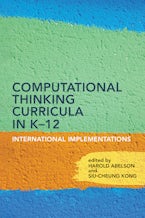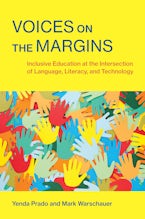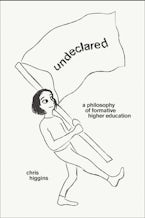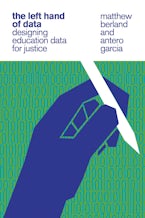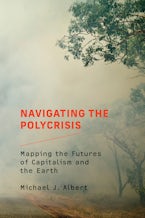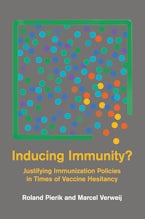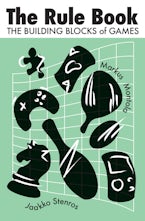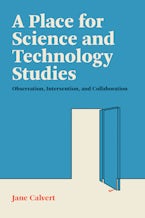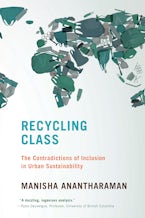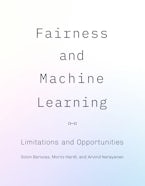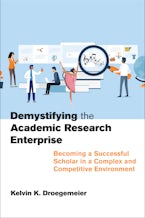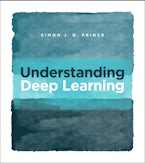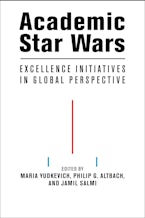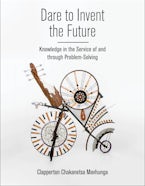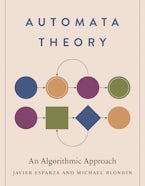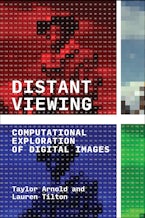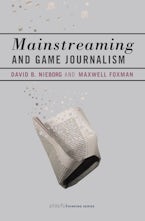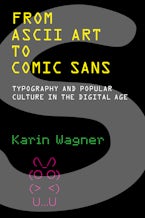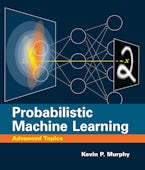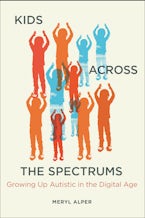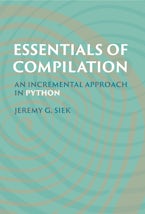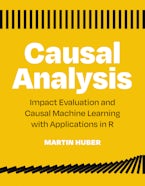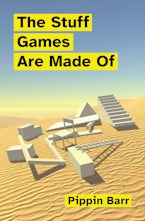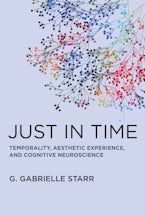
Open Access at the MIT Press
The MIT Press has been an open access leader for nearly three decades, publishing hundreds of books and articles openly, and working with authors, editors, scholars, societies, and research institutions to disseminate scholarly work as broadly as possible. The MIT Press supports a variety of open access funding models for select books and journals and sits on the leading edge of the open access movement in scholarly communication.
We focus our work in three areas: books, journals, and open access initiatives. If you are interested in learning more about open access at the MIT Press, please contact Nick Lindsay, director of journals and open access, at nlindsay (at) mit.edu.
Open access news
Preprints of Generative AI Impact Papers publish through MIT Press’s MIT Open Publishing Services (MITops)
A message from MIT President Sally Kornbluth on the publication of the first round of the Generative AI Impact Papers, published through MIT Press’s MITops.
Read MoreSupport open access publishing at the MIT Press during the 24-Hour Challenge
Join us today as we raise funds to support open access publishing and expand MITops—our rapid, open, community publishing program.
Read MoreQ&A with David Kaiser, editor of the The MIT Case Studies in Social and Ethical Responsibilities of Computing
With the launch of Issue 7 (Winter 2024) of the SERC Case Studies, we sat down with series editor David Kaiser to talk about the project and his experience with MITops.
Read MoreWith the open publication of City of Bits: Space, Place, and the Infobahn by William J. Mitchell in 1995, the MIT Press vaulted into the open access publishing space where it has pushed the limits for close to 30 years. Now, the Press is widely recognized as one of the most innovative open access publishers in the world and has made more than 350 open access books available.
Direct to Open, our open access publishing model, has accelerated our program, publishing over 160 books — scholarly monographs and scholarly collections — in the first two years. And in 2024, we will release the much-anticipated Open Encyclopedia of Cognitive Science, edited by Michael C. Frank (Stanford) and Asifa Majid (Oxford).
January 21, 2025
January 21, 2025
Multi-Agent Reinforcement Learning
December 17, 2024
December 3, 2024
October 29, 2024
October 22, 2024
October 15, 2024
September 24, 2024
September 24, 2024
A History of Bodies, Brains, and Minds
September 17, 2024
The Nature and Dynamics of Collaboration
September 3, 2024
August 27, 2024
July 9, 2024
Computational Thinking Curricula in K–12
May 21, 2024
May 14, 2024
May 14, 2024
May 14, 2024
Hedgehogs, Killing, and Kindness
May 14, 2024
May 14, 2024
May 14, 2024
May 7, 2024
Cats, Carpenters, and Accountants
May 7, 2024
April 30, 2024
April 23, 2024
April 23, 2024
April 23, 2024
The Curious Culture of Economic Theory
April 16, 2024
April 16, 2024
April 9, 2024
March 26, 2024
March 26, 2024
March 19, 2024
March 19, 2024
March 12, 2024
March 5, 2024
February 20, 2024
February 20, 2024
Psychoacoustic Foundations of Major-Minor Tonality
February 13, 2024
February 13, 2024
February 6, 2024
February 6, 2024
February 6, 2024
February 6, 2024
January 23, 2024
January 16, 2024
January 16, 2024
A Place for Science and Technology Studies
January 9, 2024
January 2, 2024
December 19, 2023
Demystifying the Academic Research Enterprise
December 19, 2023
December 19, 2023
December 12, 2023
December 5, 2023
December 5, 2023
December 5, 2023
November 28, 2023
November 21, 2023
November 21, 2023
November 21, 2023
November 7, 2023
October 31, 2023
October 24, 2023
October 24, 2023
October 17, 2023
October 17, 2023
October 17, 2023
October 10, 2023
October 10, 2023
Exploring and Exploiting Genetic Risk for Psychiatric Disorders
October 10, 2023
October 3, 2023
The Sensorium of the Drone and Communities
October 3, 2023
Mainstreaming and Game Journalism
September 26, 2023
September 19, 2023
September 19, 2023
September 19, 2023
Design, Empathy, Interpretation
September 12, 2023
September 12, 2023
September 5, 2023
August 22, 2023
August 22, 2023
August 22, 2023
August 15, 2023
Probabilistic Machine Learning
August 15, 2023
August 15, 2023
August 15, 2023
The Unequal Effects of Globalization
August 15, 2023
Bayesian Models of Perception and Action
August 8, 2023
August 8, 2023
August 8, 2023
August 1, 2023
August 1, 2023
August 1, 2023
August 1, 2023
July 25, 2023
July 25, 2023
July 18, 2023
July 18, 2023
July 18, 2023
Forecasting Travel in Urban America
July 11, 2023
July 4, 2023
June 27, 2023
June 27, 2023
Algorithmic Rights and Protections for Children
June 27, 2023
June 20, 2023
June 20, 2023
June 13, 2023
Catastrophes, Confrontations, and Constraints
June 6, 2023
June 6, 2023
June 6, 2023
June 6, 2023
May 30, 2023
Distributional Reinforcement Learning
May 30, 2023
May 23, 2023
May 16, 2023
May 16, 2023
May 16, 2023
Machine Learning for Data Streams
May 9, 2023
May 9, 2023
May 9, 2023
May 2, 2023
May 2, 2023
May 2, 2023
Principles of Knowledge Auditing
May 2, 2023
May 2, 2023
April 25, 2023
The MIT Press open access publishing program in journals began with the conversion of Information Technology and International Development from subscription-based to open access in 2006. Our longest-running open access journal is Computational Linguistics, which moved to open access in 2009. Now we are proud that all of our active journals offer some form of open access support, with 13 diamond or gold open access journals. This means our journals make it easy for authors to comply with open access publishing and science requirements from funders or institutions and ensure their scholarship reaches the widest global audience possible.












Much like our parent institution, the MIT Press thrives on creative excellence and effective entrepreneurship. As we work “daily to reimagine what a university press can be,” we strive to disrupt restrictive modes of scholarship and redefine scholarly publishing for the 21st century.
Our dedication to innovation is why we were among the first publishers to embrace digital catalogs and ebooks. It is what led to our launching, with the MIT Media Lab in 2018, Knowledge Futures, now a transformative platform developer for open access tools, which includes the PubPub content platform. It is what inspired Direct to Open, a sustainable and scalable open access publishing model that harnesses the collective power of libraries around the globe and has published over 160 open access books in its first two years.
This commitment to reducing barriers to scholarship continues to inspire our work along new lines of inquiry in scholarly communications and open access publishing.
Launched in 2021, Direct to Open (D2O) harnesses the collective power of libraries to support open and equitable access to vital, leading scholarship. With generous support from Arcadia, and in close collaboration with the library community, we have reached:
- 322 libraries
- 10 consortia
- 160+ books
- 328k reads
MIT Open Publishing Services (MITops) is a scholar-focused, MIT-branded hosting and publishing services operation. Working with our technology partner Knowledge Futures, we provide a portfolio of professional publishing services to mission-aligned partners.
PubPub is an open access publishing platform that socializes the process of knowledge creation by integrating conversation, annotation, and versioning into short- and long-form digital publication. The MIT Press publishes a variety of traditional and experimental projects on PubPub.
Support open access
We are grateful to the many partners who have supported the open access mission at the MIT Press over the years.
In May 2023, we announced the establishment of the Arcadia Open Access Fund to support open access books and journals in science and technology, social sciences, arts, and humanities. This fund is made possible by an outright endowment gift of $5 million from Arcadia, who has also provided a $5 million “challenge” gift to incentivize other funders by matching their support of MIT’s open publishing activities.
Learn more about how you can support open access at the MIT Press.
















